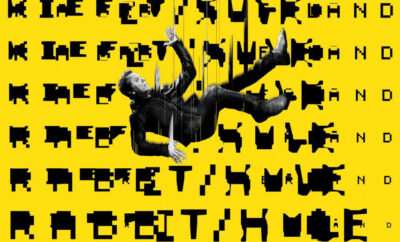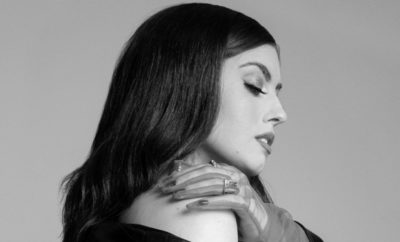Interviews
James Morrison – 24
Q. What are some of the recent projects that you’ve been working on?
A. Since I started “24” I haven’t been able to do anything really besides my own projects. My wife is a director, so we did a short film last summer during the hiatus while I was waiting to hear if I was going to be invited back. It’s been doing pretty well on the festival circuit; it’s called Crossing. We’re working on a documentary right now called Showing Up. It’s based on an idea I had years ago when I was talking to an actor friend about the audition process. You sit around and commiserate and you talk about your audition experiences because sometimes they are pretty hellish. I heard this story that I couldn’t believe was true and the way he told it was even better than the actual story. So, I thought what a great idea to actually listen to actors, good storytellers most of them, talk about the audition process and what it means and the inspirational parts. This is something we all have to do but beyond that we get to hear our favorite actors, and actors we don’t know, talk about that part of the business that we don’t usually get to experience. Getting the job part, so beyond just an actor talking about themselves, I think it goes across the lines into different professions. Because I have talked to people like photographers, and even my brother who is a pipe fitter. He’s in the pipe fitting business and he said, “You know, we all have to do this.” We all have our interview process and we bid for jobs in different ways and we’re faced with the same sort of experience as the people sitting on the other side of the desk. The rejection and the disappointment also, we get the same amount of rejection or acceptance. We’re interviewing our favorite actors and putting it into a documentary.
Q. Will you be featured in the documentary?
A. I am not going to be in it because I don’t want it to be about me. I want it to be about what it takes to keep going back into the room time after time when you think that opportunity has been taken away from you. Or, how down the road ten years an audition, interview or job that you had will turn into something else. The blessings that we are waiting to come to fruition that are underneath the surface. The undercurrent of events that are happening when we don’t even know about them. It happens to everybody, not just actors, so hopefully the draw will be outside the industry. It’ll be fun for people in the business but for people who are just workers and in their everyday civilian job; they’ll get a kick out of it too.
Q. The new season of the show “24” is gearing up. What can you tell us about the upcoming season?
A. Well, the stakes as we start this year are higher than we’ve ever been. We start in process, we start as this latest crisis has been going on for a while. The audience comes into it as mid-conflict. The threat has been happening for some time, during the course we get to see Jack after all of this time. I can’t really say more than that because you’ll be bummed if I give it away. There are a lot of interesting new faces around CTU and a lot of really scary bad guys.
Q. When last we saw Jack he was in China, what can you tell us will happen with him?
A. After all the time Jack has spent in China, he’s exceptionally pissed. The more pissed Jack is, the more fun the show is!
Q. What about your role as Bill has continued to challenge you?
A. Finding the ways in that situation, in that beurocratic, almost sterile, stoic, businesslike situation just to find the humanness and the passion and the simple human behavior that exists in those situations. When we’re in CTU, generally speaking, it’s all business. You can’t forget it for long, but you have to find the ways to make these people human. I think that’s the thing we’re all challenged by as actors in that situation.
Q. The subject matter that “24” deals with really hits close to home. These are events that could truly happen.
A. More so then any other season, this could happen. I think that’s the most terrifying thing about it. I heard producers last year say “My God, it’s so great, what are we going to do?” They’ve realized, clearly, and I am not saying this based on a conversation I had with them, it’s clear in what their producing, the scripts they are producing. The level of quality the show has achieved, the show is a fantasy, they can do whatever they want. You’ll believe it; because we’ll believe it. Kiefer’s character, Jack Bauer, that’s what makes him such an amazing character. He believes what he is doing, it’s the same with anybody in CTU. The actors believe the situations so the audience goes along with it. It doesn’t matter what happens, it could be the most far-fetched thing in the world. But, because we make it so real people follow it. The terrifying thing about that is that it’s an utter fantasy, but people in politics or the military actually look to this and say “If we had something more like ’24,’ Jack Bauer and CTU…” You say, “Hey, wait a minute, you can’t use this as a benchmark. It’s not real; it’s a TV show.” That’s terrifying to me, that I think in many ways is more terrifying then the thought of terrorism. That there are actually people out there who use this television show as some kind of a bell-weather on how to deal with torture issues or terrorism issues. Face it, we need the Fantastic Four too! But, that’s a comic strip and I just think it’s laughable that the military or politicians are saying, “Hey, if we had that, come on!”
Q. How do you prepare yourself for such dramatic subjects and scenes?
A. The most interesting thing about doing it is getting the next script and finding out what’s happening. It even makes it harder to work on scenes ahead of time, if you’re doing a scene on one day, it’s difficult to then move into the next scene even though you have to if you want to stay in that moment. It’s a pretty amazing premise, they really found something wonderful. I have talked to other producer friends of mine who have been asked to help on the show or write for the show or help to run the show. The consensus seems to be, “Oh my God, that format would drive me insane!” It’s really challenging but they really have their wheels in a groove now. After five or six seasons they found their stride. The more I can stay in the moment and the more I make the situation at hand be the most important thing and the person I am talking to be the most important thing, you can’t go wrong if you do that. If you stay in the moment, but I don’t do that many stunts around CTU except when the camera is not turning. So, I just generally stay in the moment.
Q. The cast seems to have quite the amount of chemistry together. Is that the same way off screen as well?
A. We get along great, we have great fun when the camera is not turning too. I think one of the things about the show, about anything really, it is sort of a cut above. I think people really bring love to the work. They bring their love for the work to the work. It doesn’t matter what you do, your job, anybody’s job, if you bring love to it and bring that enthusiasm to it, that is really all that matters. That brings people along.
Q. Do you have a really memorable moment from your time working on the show?
A. I think the most memorable moment was when we wrapped last season. Actually two, it’s sort of an extension of the same moment. But, we were at the wrap party and we were at Jon Cassar’s house, out in his yard. I went up to say hello to Joel Surnow, the executive producer, to say thanks and just to say hello. He grabbed my hand and pulled my ear close to my mouth and said, “We want you to come back next season, for the entire season.” That was the thrill of the season for me, because it meant what we had done together meant something to him. It meant enough to them to want to do more. I felt exactly the same way and it was a really fulfilling moment because you know you’re in the right place. The next moment was when I was talking later to Howard Gordon and he said, “You know Joel and I were talking about it and we sort of fought about who was going to tell you. I wanted to tell you and he said no, ‘I wanted to tell him.'” I thought, that’s that’s the greatest, when you know you’re wanted by the people you work for and admire the most as collaborators and your bosses. That’s the biggest thrill you could have. All the hard work and the long hours and all the struggle of the season and the joys and everything sort of culminated with that affirmation.
Q. You never know who is going to die each season and to be able to have them say we want you back is a big booster.
A. It’s nice to just know you’re wanted as an actor. You just never know and it’s such a fickle business and the best feedback you can get is not somebody saying you did a good job. It’s we want you to do more, we want to work with you some more, that’s the best feedback you can get. You’re right, everybody has a target on their back the minute you sign on to the show. Somebody will say, “I’m only doing three episodes,” and they say, “If you’re not dead, you could be back.” It’s kind of exciting, it’s just like life, you never know what the next hour could bring. A bus could crash through the wall of your house, it’s just like life, if you stay in the moment, if you’re present, if you’ve got your complete focus on what’s happening this moment, you’ll be more productive and happier than you’ve ever been. The same holds true on the show, because it’s in real time, the conversation I’m having with Chloe about what we’re going to do about this, the thing that’s happening now, that’s the most important thing. That’s what people dig, that’s what they want to watch. What are these people going to do?





You must be logged in to post a comment Login